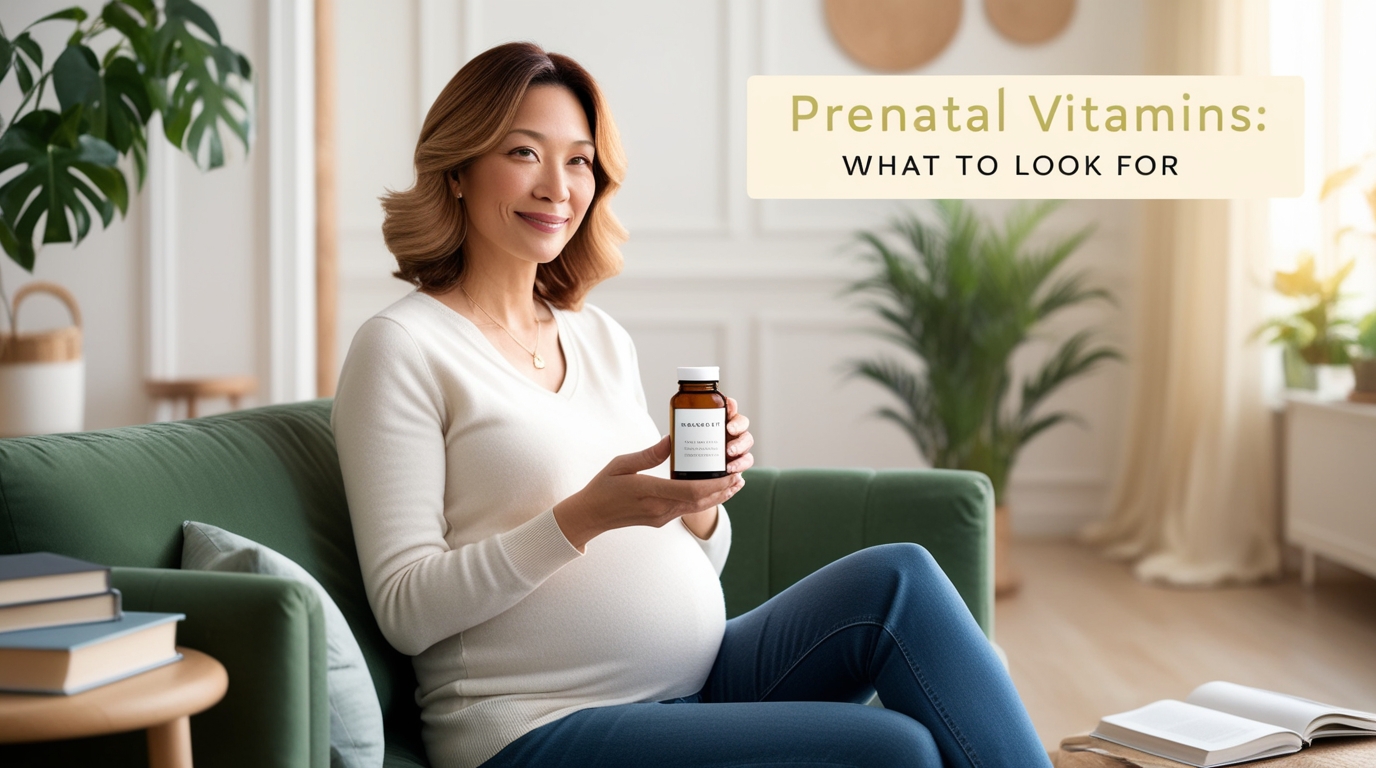Pregnancy is a beautiful and transformative journey, and taking care of yourself becomes more important than ever. During this time, your body needs extra support to nourish both you and your growing baby. While a balanced diet is crucial, prenatal vitamins play an important role in filling any nutritional gaps. They provide essential nutrients to ensure both you and your baby stay healthy. But with so many options available, choosing the right prenatal vitamins can feel overwhelming. This guide will help you understand what to look for in prenatal vitamins, so you can make the best choice for your health and your baby’s development.
know more about prenatal diets from best dietician click here.
Why Are Prenatal Vitamins Important?
Prenatal vitamins are specially formulated to support pregnancy by providing vitamins and minerals that are key to your baby’s development. They help reduce the risk of birth defects, support bone and brain development, and ensure you have the energy and nutrients your body needs during this demanding time.
Essential Nutrients in Prenatal Vitamins
There are a few must-have vitamins and minerals that you should look for in prenatal supplements. Let’s break them down:
Folic Acid
Folic acid is perhaps the most well-known prenatal nutrient, and for good reason. It helps prevent neural tube defects, which affect the brain and spine of the baby. This nutrient is especially crucial during the first trimester when your baby’s neural tube is forming.
- Daily requirement: 400-600 micrograms (mcg)
- Tip: It’s ideal to start taking folic acid even before pregnancy to ensure your body is ready for baby’s development.
Iron
Iron supports the production of extra blood in your body, which is needed during pregnancy. It also helps deliver oxygen to your baby. Without enough iron, you may feel fatigued and at risk for anemia.
- Daily requirement: 27 milligrams (mg)
- Tip: If you feel unusually tired, low iron could be the cause. Foods like spinach and red meat are great sources of iron, but supplements ensure you’re getting enough.
Calcium
Your body needs calcium to build strong bones and teeth for the baby. If you don’t get enough, your body will pull calcium from your bones, which can weaken them over time.
- Daily requirement: 1,000 milligrams (mg)
- Tip: Most prenatal vitamins don’t have the full amount of calcium, so be sure to include calcium-rich foods like milk, cheese, or fortified alternatives in your diet.
Vitamin D
Vitamin D helps your body absorb calcium and supports your baby’s bone development. It also strengthens your immune system.
- Daily requirement: 600 international units (IU)
- Tip: Getting some sunlight each day can help your body produce vitamin D, but supplements ensure you’re meeting your needs.
DHA (Omega-3 Fatty Acids)
DHA is an omega-3 fatty acid that plays a critical role in your baby’s brain and eye development. It’s not always included in prenatal vitamins, so it’s worth checking the label or taking a separate DHA supplement.
- Daily requirement: 200-300 milligrams (mg)
- Tip: Fatty fish like salmon and sardines are rich in DHA, but if you don’t eat much fish, a DHA supplement can help.
Iodine
Iodine is essential for thyroid function, which regulates your body’s metabolism. It also plays an important role in your baby’s brain development.
- Daily requirement: 220 micrograms (mcg)
- Tip: Seaweed, dairy, and iodized salt are good sources of iodine if you want to boost your intake through food.
Vitamin B6
Vitamin B6 can help with nausea and vomiting, which many women experience during the first trimester. It also supports brain development in your baby.
- Daily requirement: 1.9 milligrams (mg)
- Tip: If you’re struggling with morning sickness, look for a prenatal vitamin that includes vitamin B6 to help ease the symptoms.
What to Avoid in Prenatal Vitamins
While it’s essential to get enough nutrients, some vitamins should be consumed in moderation during pregnancy.
- Too much vitamin A: High doses of vitamin A from supplements can cause birth defects, so stick to the recommended amount of 770 mcg daily.
- Over-supplementation: More is not always better. Taking too many supplements, especially from different sources, can cause harmful side effects. Always check with your doctor before adding extra vitamins to your routine.
When to Start Taking Prenatal Vitamins
Ideally, you should start taking prenatal vitamins before you even get pregnant. Neural tube development happens early in pregnancy, often before most women know they’re pregnant. If you’re trying to conceive or are in the early stages of pregnancy, start a prenatal vitamin as soon as possible.
How to Choose the Best Prenatal Vitamin
With so many prenatal vitamins on the market, here are a few tips to help you choose the right one for you:
- Check the label: Ensure the vitamin contains the essential nutrients like folic acid, iron, calcium, and DHA.
- Talk to your doctor: Your healthcare provider can recommend the best option for you, especially if you have specific dietary needs or medical conditions.
- Consider gummies vs. pills: Some people find it hard to swallow large pills. If that’s the case for you, gummy vitamins might be an easier option, though they often don’t contain iron.
- Look for reputable brands: Choose vitamins that are tested for quality and purity.
Foods to Pair with Prenatal Vitamins
While prenatal vitamins are important, a healthy diet should still be your primary source of nutrients. Aim to include nutrient-rich foods in your daily meals, such as:
- Leafy greens: Spinach and kale are rich in folic acid and iron.
- Dairy products: Yogurt, milk, and cheese provide calcium and vitamin D.
- Nuts and seeds: Almonds, chia seeds, and flaxseeds offer omega-3 fatty acids and protein.
Conclusion
Taking care of yourself during pregnancy is one of the greatest gifts you can give your baby. Prenatal vitamins are an easy way to ensure you’re meeting your nutritional needs. A healthy pregnancy starts with the right nutrients, so choose a prenatal vitamin that supports both you and your growing baby.
By focusing on a balanced diet and taking the right prenatal vitamins, you can set the foundation for a healthy pregnancy and give your baby the best possible start in life.





